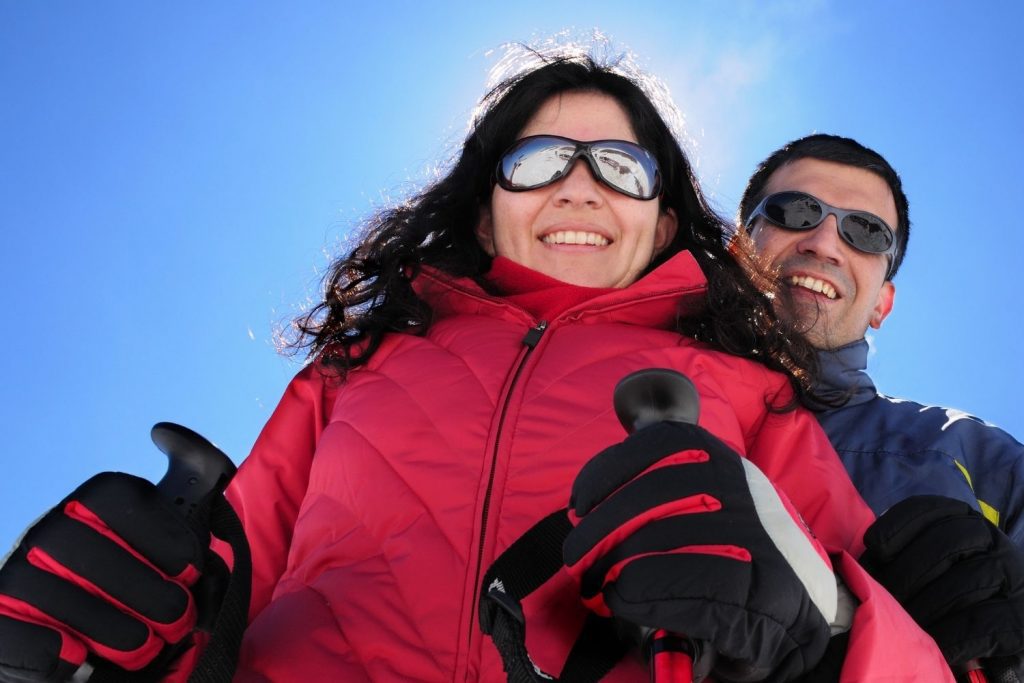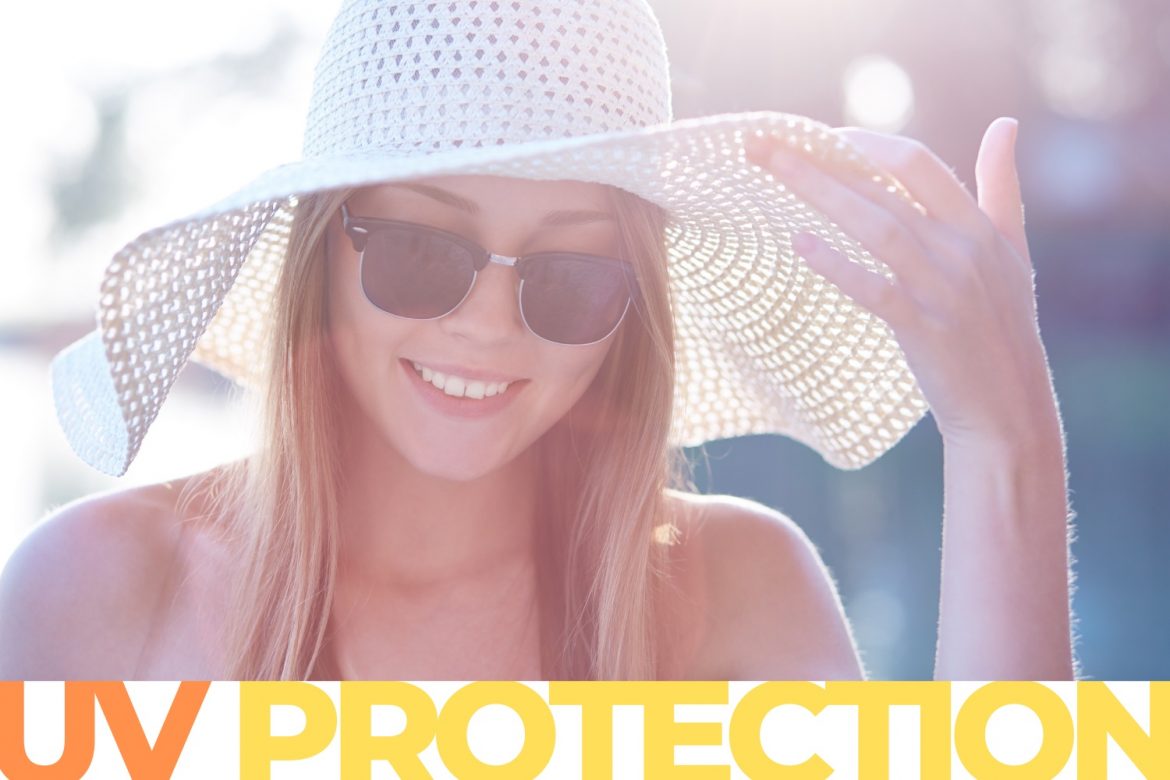![]()
Skin cancer is the most commonly diagnosed type of cancer in the U.S. And exposure to ultraviolet (UV) radiation is the leading environmental risk factor for skin cancers.
Of course, using sunscreen helps to protect your skin. But how do you protect your eyes? UV radiation can damage the fragile skin around your eyes as well as the structures inside your eye.
What is UV radiation?
UV radiation is in the atmosphere in any weather conditions—sunny or not. Damage from it can occur directly or indirectly from sun exposure. Light reflected off of water, windows, sand or buildings can penetrate into your eyes and the surrounding skin. Tanning beds also produce harmful UV radiation.
Ultraviolet wavelengths or rays of light are so small they are invisible to the naked eye. There are two groups of UV rays found in the atmosphere.
UVA rays
UVA rays penetrate deeply into your eye. They pass through your cornea—the clear window on the front surface of your eye—and reach the lens and retina inside your eye. UVA rays are the prime culprit in macular degeneration and increase your risk of developing cataracts.
UVB rays
UVB rays are responsible for skin cancers around your eye. UVB rays also penetrate the superficial structures of your eye.
How can UV radiation affect your eyes?

- Eyelid skin cancers
Commonly called BCC (basal cell carcinoma) and SCC (squamous cell carcinoma), eyelid skin cancers usually present as rough areas of skin on your eyelid that can flake off and grow back. Sometimes the area will be itchy, red and weepy. In most cases, eyelid skin cancers must be surgically removed. - Cataracts
Cataracts clouds and yellows the lens of your eyes. - Macular degeneration
Over time, exposure to UV radiation can damage the central portion of the retina in the back of your eye called the macular. When the macular is damaged you will get a blurry area in your central vision. - Photokeratitis
Photokeratitis is essentially a sunburn to your eyes which affects the cornea and conjuctiva. It can cause painful burning in your eye and many other symptoms. Skiers often suffer photokeratitis (or “snow blindness”) because at high altitudes the UV exposure is more intense. - Pterygium/Pinguecula
These are benign growths that appear on the conjunctiva. They are often seen in people who spend a lot of time on the water and are sometimes referred to as “surfer’s eye.” - Conjunctival cancers
Conjunctival cancers are malignant growths on the whites of your eyes. They are becoming more common, particularly in the elderly.
Protect your eyes from harmful UV rays
Sunglasses and eyeglasses provide protection from UV rays. Always look for sunglasses and eyeglasses that boast 100% blocking ability for both UVA and UVB rays. Also, understand: the depth of tint in sunglasses is NOT related to the UV blocking performance.

When selecting glasses, consider the following:
- Frame size—Frames that wrap around your face and block light coming in from the sides offer the best protection. Smaller frames don’t always provide adequate protection for the eyelids and skin around your eyes even if the lenses offer 100% UV blocking.
- Polarization—Polarised lenses offer 100% UV protection, but you still need to be mindful of the size and fit of the glasses. They will give you clearer visibility looking into water and reduce reflections off bright surfaces
- If you wear eyeglasses full-time—Order lenses with UV protection. If the glasses you wear do not have UV protection, wearsunglasses when you are outdoors.
Do you wear contact lenses? Wear sunglasses too. Learn more about that subject here.
A number of contact lens brands now offer protection from UV radiation. However they only protect a small area of your eye. UV blocking contact lenses are no substitute for a good pair of sunglasses.
Slip, slop, slap and wrap
You need to understand the danger of UV rays and protect yourself. But you need not hibernate indoors.
A daily dose of natural light helps you get a good night’s sleep. The light-sensitive cells in your eye regulate your body’s natural wake-sleep cycles.
So my advice is to…
ALWAYS slip into the shade, slop on sunscreen, slap on your hat and wrap on your sunnies!
And, of course, consult your eye doctor immediately if you notice any new lumps or bumps forming in or around your eyes.


